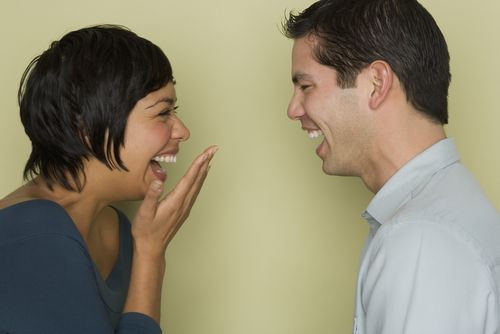Laugh Out Loud: Why Interpersonal Relationships Makes The Brain Produce The Most Laughter

Bouts of laughter can sometimes lead to rolling on the floor in tears, our stomachs cramping as we try to stop but cannot. This involuntary action, not choice, is so primal to us that we barely notice how we sound. But why we laugh has less to do with jokes and more to do with our social relationships that lead to these periods of short exhalation.
“We’re neurologically programmed to laugh in a particular way,” said Dr. Robert Provine, a behavioral neurobiologist at the University of Maryland in Baltimore, who has been studying social and neurological roots of laughter for 20 years, in The Atlantic YouTube channel. Provine addresses a short exhalation lasts about a fifteenth of a second and repeats about every fifth second. This makes it difficult for us to laugh any other way because it’s thought to be genetic.
This vocalization is a “universal part of the human vocabulary, and people of all races, and all cultures, throughout history have laughed in pretty much the same way,” Provine said. When we gather with other people and laugh, we tend to engage in the same behavior. This type of laughter is produced by the brain 30 times more than solitary laughter, since when we laugh and hear other people laugh, we’re neurologically programmed to repeat.
Laughter is associated with positive things in our feel-good society, but it can also have a dark side. The spontaneous and uncensored vocalization is a powerful probe for relationships, and it could be detrimental. “It can be painful or even dangerous if you're laughing at someone, or they're laughing at you,” Provine said.
To learn more about why we laugh and how this feeling can have positive and negative connotations in social settings, watch below. Go ahead. It’s OK to laugh out loud in good humor for your health.
Published by Medicaldaily.com



























